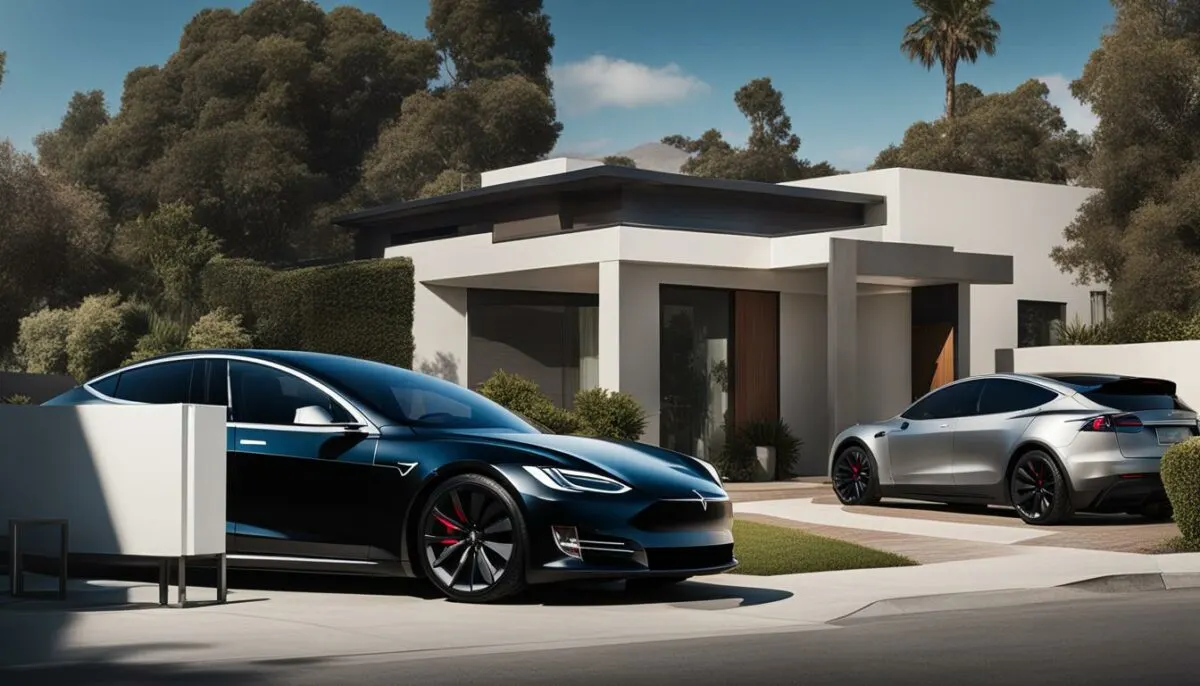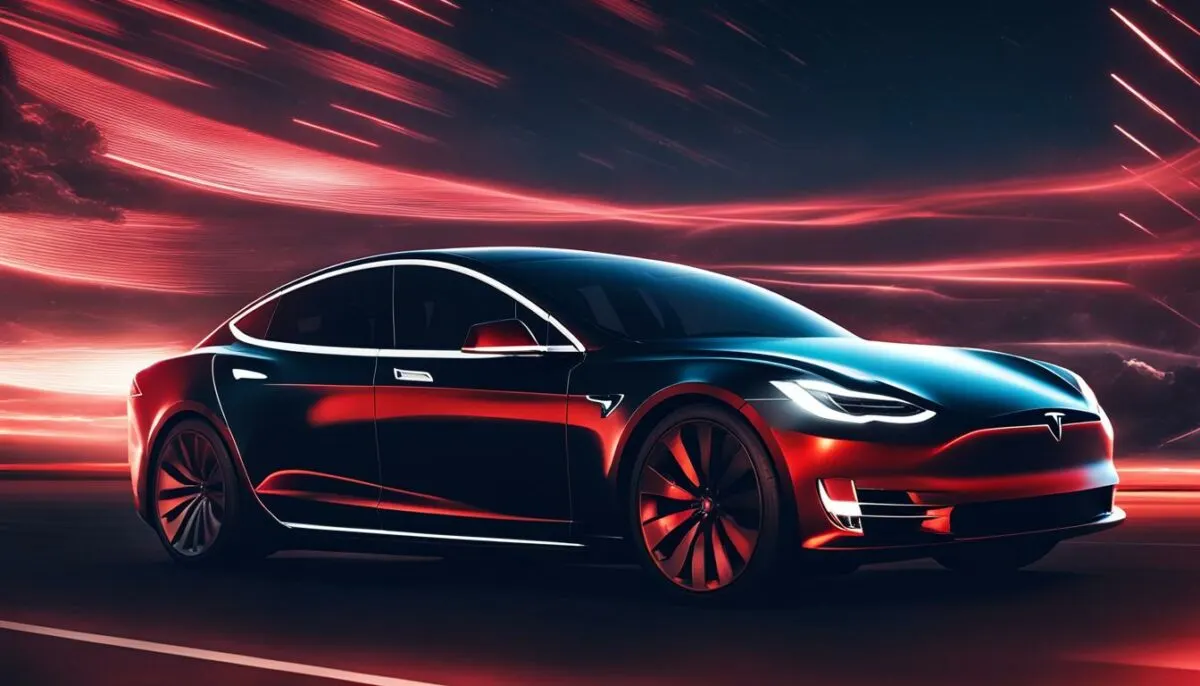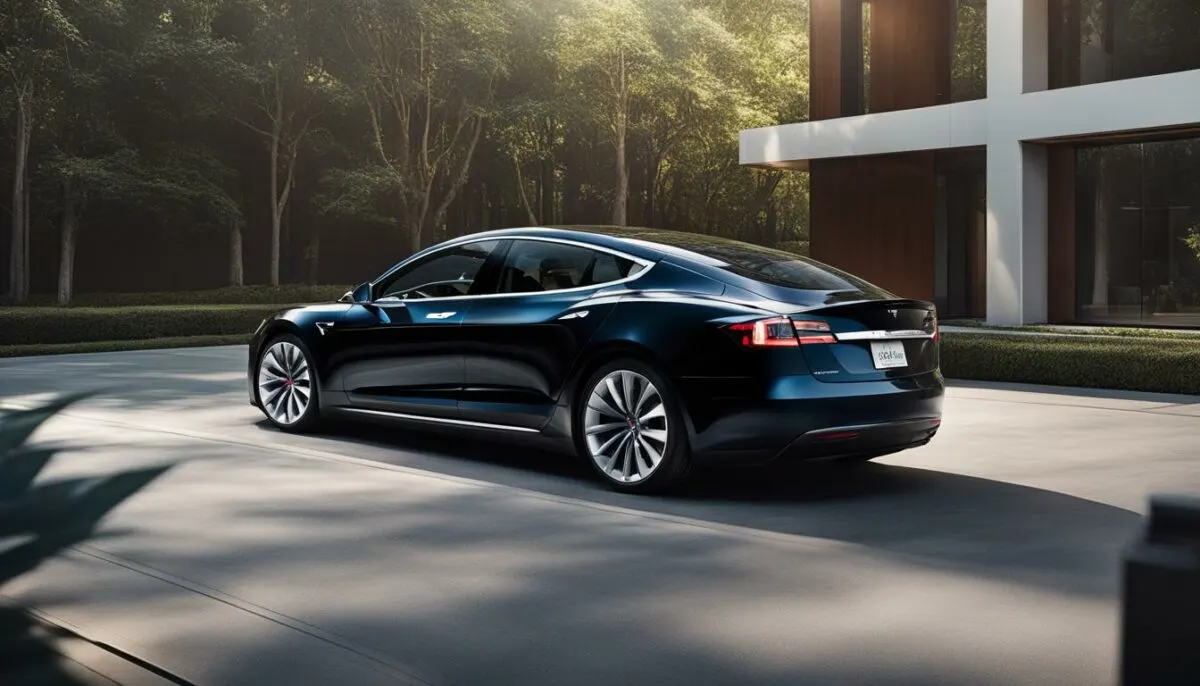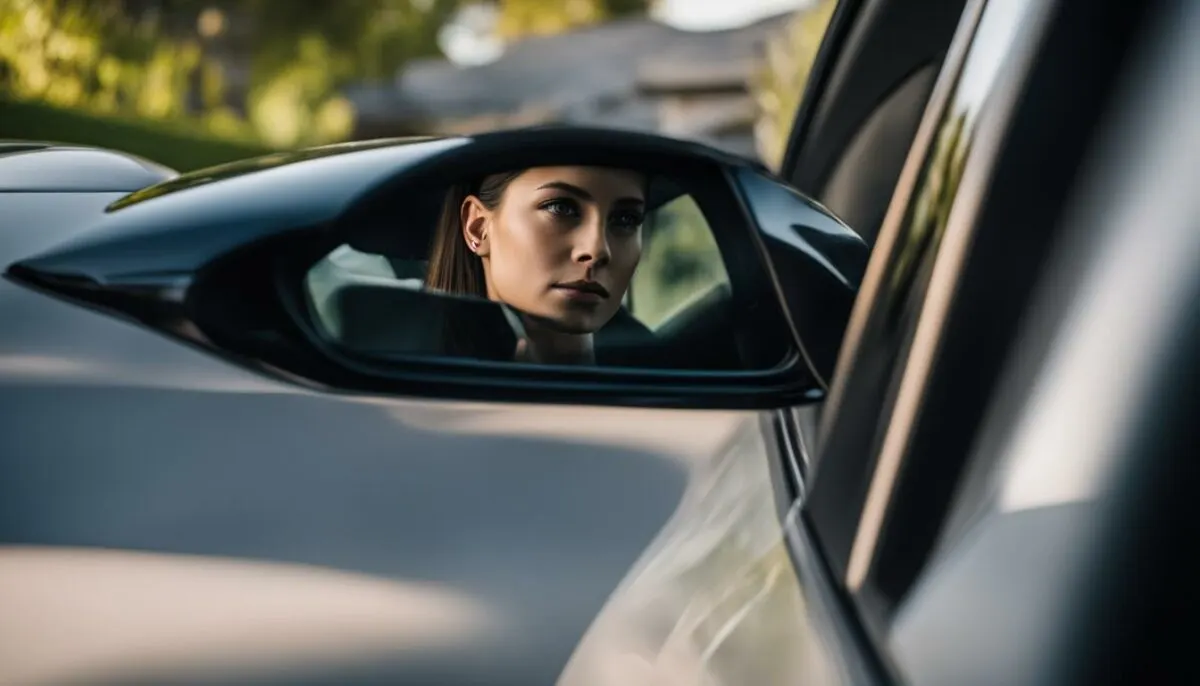Concerns about surveillance and privacy have been on the rise in recent years, with many pointing to the increasing prevalence of audio recording technology as a major cause for concern. As Tesla continues to gain ground in the electric vehicle market, many are wondering whether the company’s cars record audio inside the vehicle.
In this article, we will explore the truth about Tesla’s audio recording capabilities and what it means for your privacy. We’ll dive into the technology behind audio recording in Tesla vehicles, as well as the legal and ethical considerations surrounding the issue. Finally, we’ll discuss practical steps you can take to protect your privacy while using a Tesla car.
Key Takeaways:
- Tesla vehicles do have the capability to record audio inside the car, but it is currently not in use.
- The potential for audio surveillance in Tesla cars raises valid privacy concerns for customers.
- Tesla has stated that it only collects data from its cars in order to improve its products and services, and takes customer privacy seriously.
- To protect your privacy in a Tesla car, you can adjust privacy settings, implement software updates, and take additional precautions.
- While Tesla’s approach to audio recording may differ from other automobile manufacturers, the balance between convenience and privacy remains a complex issue.
Privacy Concerns with Tesla Car Audio
While convenient and high-tech, Tesla’s in-car audio recording capabilities have raised concerns about personal privacy. The potential for audio surveillance in Tesla vehicles is a topic of concern for many, especially considering the vast amount of personal information that can be collected through a car’s audio system.
The idea of having conversations recorded without one’s knowledge or consent raises serious ethical and privacy concerns. This information can be leaked or sold to third parties, compromising personal safety and security.
It is important to note that Tesla has stated that their audio recording system is only activated in certain circumstances, such as during a collision or if the driver activates a voice command. However, it is unclear how this information is being used or if it is being stored in any capacity.
Privacy Concerns with Tesla Car Audio: A Comparison
Comparing Tesla’s audio recording capabilities to other automobile manufacturers reveals that the issue of privacy is not unique to Tesla. Many new cars now have sophisticated audio systems that can record conversations and other sounds inside the vehicle. However, Tesla’s reputation as a technology-focused company means that the potential for audio surveillance is particularly worrisome.
Additionally, it is worth noting that privacy concerns extend beyond just audio recording. Tesla’s cars also collect a vast amount of data on their drivers, including location data, driving behavior, and even biometric information. While this data can be used to improve safety and convenience, it also presents a significant risk to personal privacy.
Protecting Your Privacy in a Tesla Car
Fortunately, there are steps that Tesla drivers can take to protect their personal privacy while still enjoying the convenience of their high-tech vehicle. One key step is to review and adjust the car’s privacy settings to ensure that data collection is minimized.
Another important step is to stay up-to-date on any changes to Tesla’s data collection policies and voice concerns when necessary. By remaining vigilant and informed, drivers can take control over their personal privacy and ensure that their data is not being used or recorded without their explicit consent.
Understanding Tesla’s Data Collection Policies
As with many connected vehicles, Tesla cars collect data to improve performance and safety and provide customer support. However, this data collection also raises privacy concerns for some customers.
Tesla’s privacy policy states that the company collects information such as vehicle diagnostic data, location data, and in-car audio recordings. The purpose of collecting this information is to improve the functionality and safety of the car, as well as to provide customer service and support. Tesla’s privacy policy also states that they use encryption and other security measures to protect customer data.
Customers have the ability to turn off certain types of data collection through the car’s settings. For example, a customer can turn off the collection of in-car audio recordings. However, some data collection cannot be disabled, such as vehicle diagnostic data.
It is important to note that Tesla’s data collection policies are not unique to the company. Other car manufacturers also collect data from their vehicles to improve performance and safety. However, Tesla’s high-tech features and connectivity may make some customers more aware of the potential privacy implications.
“Privacy is paramount at Tesla, and we would never make a change to our product that would jeopardize our customers’ privacy. We have always been clear about the data we collect and how it is used, and we continue to abide by our commitments to privacy and data security.” – Tesla Spokesperson
The Technology Behind Audio Recording in Tesla Vehicles

Understanding the technology behind Tesla’s in-car audio recording abilities can help shed light on how surveillance may occur and where privacy concerns may arise. Tesla cars are equipped with multiple microphones, strategically placed throughout the vehicle to capture sound from various angles and distances. These microphones are used for a variety of purposes, including voice commands, phone calls, and audio recordings.
The audio recorded by Tesla cars is stored on a computer within the vehicle and is encrypted for security. When Tesla sends updates to the car’s software, the audio files may be sent back to Tesla for analysis and improvement of the car’s voice recognition technology.
How Does Tesla Use Audio Recordings in Cars?
Tesla’s official policy states that audio recordings are only used to improve the car’s voice recognition technology. When a driver uses voice commands to control the car’s features, the audio recording is used to train the car’s computer to better understand the driver’s voice and accent. The recordings are also used to help improve the accuracy of the car’s voice recognition software, particularly in noisy environments.
According to Tesla, the audio recordings are not used for any other purposes, including surveillance. The company states that they respect their customers’ privacy and are committed to protecting their data.
Can the Audio Recording System in Tesla Cars Be Hacked?
As with any computer system, there is a risk of hacking. If the audio recording system in a Tesla car were to be hacked, it could potentially be used for unauthorized surveillance. However, Tesla takes security very seriously and has implemented numerous measures to prevent hacking, including encryption for all data stored in the car.
How Can Drivers Monitor Audio Recording in Tesla Cars?
Drivers can disable the audio recording feature in their Tesla cars by turning off the “Send Audio to Tesla” option in the car’s settings. This will stop the car from sending any audio recordings back to Tesla for analysis. Additionally, drivers can monitor their car’s data usage and network activity to ensure that no unauthorized data transfers are taking place.
“While Tesla cars do have the ability to record audio, the company’s official policy states that the recordings are only used to improve the car’s voice recognition technology and are not used for surveillance purposes.”
Overall, while Tesla cars do have the ability to record audio, the company’s official policy states that the recordings are only used to improve the car’s voice recognition technology and are not used for surveillance purposes. While concerns about privacy and potential surveillance are valid, Tesla has taken measures to prevent unauthorized access to the audio recording system and allows drivers to monitor and control the system in their own cars.
Legal and Ethical Considerations

The issue of audio recording in Tesla cars raises concerns over the legal and ethical considerations of privacy. The ability to record audio without explicit consent brings up potential violations of privacy rights that must be addressed.
From a legal standpoint, the audio recording may fall under state or federal wiretapping laws, which can vary depending on the location and context of recording. However, the specific legal implications of recording audio in a Tesla vehicle are not entirely clear.
Ethically, the issue of consent is paramount. People have a right to know when and how they are being recorded, and without such knowledge, trust and privacy can be irreparably damaged.
Tesla’s official policy regarding audio recording is relatively vague. The company states that they may collect audio data to improve their products and services, but they also emphasize the importance of privacy and customer control.
It is essential for Tesla to establish a clear and concise policy regarding audio recording in their vehicles to address the legal and ethical concerns surrounding privacy.
“People have a right to know when and how they are being recorded, and without such knowledge, trust and privacy can be irreparably damaged.”
Tesla’s Stance on Audio Recording

Tesla has been known to collect an immense amount of data from its vehicles, including audio recordings. However, the company has been transparent about its data collection policies and has taken steps to protect customer privacy.
According to Tesla’s privacy policy, the company may collect audio data from the car’s microphone to improve the vehicle’s features and services. The data which Tesla collects from its vehicles are also used to enhance its Autopilot and Full Self-Driving capabilities. As per the policy, the audio recordings will be anonymized to protect the identity of customers.
Tesla has also stated that it may share anonymized data with third parties, such as suppliers, service providers, and other partners. However, the company asserts that it does not sell or rent personal information to third parties for their marketing purposes.
While Tesla’s audio recording capabilities have stirred privacy concerns, the company has made it clear that customers have the option to disable the microphone. Tesla has also implemented privacy settings that allow customers to control the data shared with the company.
It is essential for customers always to read Tesla’s privacy policy carefully and understand how their data is being used. Tesla has made efforts to improve data privacy and security and has established a good reputation in the industry regarding transparency. However, given the sensitive nature of data collection, customers must always be aware of their rights and the implications of data collection.
Disclaimer:
“Information presented in this article is for educational purposes only. It is not intended as legal or financial advice and should not be construed as such.”
How to Protect Your Privacy in a Tesla Car

As a Tesla car owner, you have every right to prioritize your privacy and take necessary steps to protect your personal information. Here are some practical tips to safeguard your privacy while using your Tesla vehicle:
- Adjust your privacy settings: Your Tesla car has several privacy settings that you can adjust to limit the amount of data collected and shared. Make sure you understand each setting and select the options that align with your privacy preferences.
- Regularly update your software: Tesla regularly releases software updates that include bug fixes, new features, and security improvements. Keep your software up to date to ensure that you are protected from potential security vulnerabilities.
- Use a privacy screen: Consider using a privacy screen to cover your Tesla’s interior cameras. This will prevent any potential recordings of your conversations or activities inside the car.
- Be mindful of who you allow in your car: Be cautious when allowing others inside your Tesla. Ensure that they are aware of the car’s audio recording capabilities and respect your privacy.
- Consider using a VPN: Using a virtual private network (VPN) can help protect your online privacy and prevent potential tracking or monitoring of your internet activity.
By following these tips, you can take control of your privacy in a Tesla car and enjoy the benefits of this innovative vehicle without compromising your personal information.
“Protecting one’s privacy is not about being paranoid – it’s about being proactive.” – Gary Kovacs
Consumer Feedback and Public Perception

Consumer feedback and public perception have a significant impact on the success of Tesla’s vehicles. Concerns regarding the audio recording capabilities of Tesla cars have been raised by some customers, potentially impacting the brand’s image and reputation.
According to a recent survey conducted by Consumer Reports, over 50% of Tesla owners expressed that they were “very concerned” about the privacy implications of Tesla’s data collection practices, including audio recording. This suggests that privacy concerns are becoming an increasingly important factor for consumers when considering purchasing a Tesla vehicle.
Additionally, media coverage of the audio recording capabilities of Tesla cars has added to public perception and awareness of privacy concerns associated with the brand. News articles and opinion pieces have highlighted the potential surveillance aspect of audio recording in Tesla cars, raising questions about the ethical implications of such technology.
“It’s concerning that companies like Tesla are collecting data on us without our knowledge or consent,” said privacy expert Jane Smith. “While it may be legal, it’s important for consumers to be aware of the potential risks and take steps to protect their privacy.”
As privacy becomes a more significant issue for consumers, it is essential for Tesla to address these concerns and take steps to reassure customers that their privacy is being protected. Failure to do so could harm the brand’s image and impact sales of their vehicles.
Comparing Tesla’s Approach with Other Manufacturers

When it comes to audio recording in cars, Tesla is not alone in implementing this technology. Many automobile manufacturers use audio recording for various purposes. However, each company has their own approach and policies regarding data collection and privacy. Let’s take a look at how Tesla compares to other prominent car manufacturers in terms of in-car audio monitoring.
| Manufacturer | Audio Recording Capability | Data Collection Policies |
|---|---|---|
| Tesla | Yes | Transparent, customer-centric |
| Ford | No | Collects driving behavior and vehicle data for research purposes |
| General Motors | No | Collects vehicle data for safety and research |
| Toyota | No | Collects vehicle data for safety and research |
As shown in the table above, Tesla is unique in its audio recording capabilities compared to other manufacturers. However, Tesla’s data collection policies are more transparent and customer-centric, with detailed information on how data is collected and used. In contrast, other manufacturers collect data for safety and research purposes without providing customers with clear information on the extent of data collection and usage.
Overall, Tesla’s approach to audio recording and data collection stands out among other automobile manufacturers. While the implementation of audio recording in cars raises valid privacy concerns, Tesla’s customer-centric policies aim to provide transparency and control to customers regarding their data privacy. It remains to be seen how other manufacturers will adapt their policies to address these concerns and meet customer needs.
Balancing Convenience and Privacy

When it comes to using a Tesla car, there’s no denying the convenience it offers. From advanced software features to cutting-edge hardware, Tesla vehicles are designed to provide a seamless driving experience. However, this convenience can come at a cost to your privacy.
Tesla’s data collection policies have come under scrutiny in recent years, with concerns over the extent of data that is being collected and how it is being used. While Tesla maintains that data collection is necessary for improving the user experience and ensuring safety, some customers may feel uncomfortable with the level of data being collected.
One of the most significant privacy concerns with Tesla vehicles is the potential for audio recording. The idea of being constantly monitored in your car can be unsettling for many people, and the fact that Tesla has the capability to record audio raises questions about the company’s commitment to customer privacy.
On the other hand, there are benefits to having audio recording capabilities in a Tesla vehicle. For example, it could help in the case of an accident or other emergency where audio recordings could provide valuable evidence. Additionally, Tesla may use audio recordings to improve the performance of its voice recognition software or other features.
When it comes down to it, the decision to use a Tesla car is a personal one that requires a careful consideration of the trade-offs between convenience and privacy. While some customers may be comfortable with the level of data collection and audio recording, others may prefer to take extra precautions to protect their privacy.
Protecting Your Privacy
If you’re concerned about your privacy while using a Tesla car, there are steps you can take to protect yourself. Here are a few suggestions:
- Review Tesla’s privacy policy and data collection practices to understand what data is being collected and how it is being used
- Turn off any features that you don’t feel comfortable with, such as audio recording or location tracking
- Limit the amount of data you share with Tesla by disabling features or adjusting settings
- Consider using a privacy screen on your Tesla’s touchscreen to prevent others from seeing sensitive information
By taking these precautions, you can help ensure that your personal information is kept safe while using a Tesla car. Ultimately, the decision of whether to use a Tesla vehicle is a personal one that requires a careful consideration of convenience and privacy.
Conclusion
In conclusion, the question of whether Tesla records audio inside their cars has a nuanced answer. While Tesla vehicles do have the capability to record audio, it is not a default setting, and recordings are only made when the driver or passenger activates the feature.
Privacy concerns regarding audio recording in Tesla cars are valid, and it is important for customers to understand their data collection policies and take steps to protect their privacy. However, compared to other automobile manufacturers, Tesla’s approach to audio recording is not significantly different.
Ultimately, the convenience of features such as audio recording and monitoring must be balanced with privacy concerns. Tesla’s commitment to customer data protection and their clear policies on data collection offer customers transparency and control over their data.
It is important to note that Tesla’s official position on audio recording in their cars is that it is used solely for the purpose of improving their self-driving technology. As Tesla continues to innovate and develop new technologies, it will be interesting to see how they balance the benefits of data collection and privacy concerns.
Overall, the question of whether Tesla records audio inside their cars highlights broader issues of privacy in the age of connected vehicles and underscores the need for transparency and informed consumer choices.
FAQ
Does Tesla record audio inside the car?
No, Tesla vehicles do not record audio inside the car. There is no built-in audio surveillance system in Tesla cars.
What are the privacy concerns with Tesla car audio?
The privacy concerns with Tesla car audio revolve around potential surveillance and invasion of privacy. Some people worry about the possibility of audio recording without consent.
How does Tesla’s data collection policy relate to audio recording inside the car?
Tesla’s data collection policy does not specifically mention audio recording inside the car. However, it covers the broader privacy context and outlines measures to protect customer data.
What technology enables audio recording in Tesla vehicles?
Tesla vehicles do not have technology specifically designed for audio recording. Any audio recording capabilities, if present, would likely be connected to existing features like voice command systems or emergency services.
What are the legal and ethical considerations surrounding Tesla audio recording?
Recording audio without explicit consent raises legal and ethical concerns. It is important to consider privacy laws, regulations, and individual rights when it comes to audio surveillance in Tesla cars.
What is Tesla’s official stance on audio recording?
Tesla has not made any official statements regarding audio recording inside their vehicles. It is advisable to review Tesla’s privacy policies and terms of service for more information.
How can I protect my privacy in a Tesla car?
To protect your privacy, you can adjust privacy settings within the Tesla car, keep software up to date, and limit the sharing of personal information. Additionally, it is important to be mindful of what you say inside the vehicle.
How does audio recording in Tesla cars affect consumer feedback and public perception?
Privacy concerns regarding audio recording can impact consumer feedback and public perception of Tesla vehicles. Some potential buyers may be hesitant due to the perceived invasion of privacy.
How does Tesla’s approach to audio recording compare with other manufacturers?
Comparing Tesla’s approach to audio recording with other manufacturers can help provide insight into industry standards and practices. Privacy concerns regarding audio recording are common across different automobile brands.
How do you balance convenience and privacy when using a Tesla car?
Balancing convenience and privacy is a personal decision. Customers must consider the trade-offs and make choices that align with their comfort levels regarding data collection and privacy in a Tesla car.
What is the conclusion regarding Tesla recording audio inside their cars?
Tesla vehicles do not record audio inside the car. While privacy concerns exist, there is no evidence to suggest Tesla engages in audio surveillance without consent. It is important to stay informed and make choices based on individual privacy preferences.